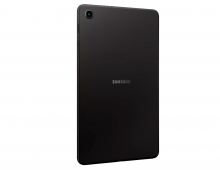
Tablet Market To Exceed 100 Million Shipments in 2012
The April to June quarter of 2012 set a new record for media tablet shipments, and this year's total shipments are expected to exceed 100 million this year, ABI Research estimates.
April to Jun tablet sales reached nearly 25 million units with total shipments growing 36% quarter-over-quarter (QoQ) and 77% year-over-year (YoY). Apple iPad shipments represented nearly 69% of worldwide volumes for the period, according to a preliminary assessment of vendor share by ABI Research.
Gains in the quarter also came from Samsung (8.1%) and ASUS (4.0%), while RIM (1.0%) experienced the most significant decline. Shipments of Dell and LG ceased in the period as both companies retrench for future tablet offerings. Worldwide shipments of media tablets are expected to exceed 100 million units in 2012.
Most impressive about Apples 17.0 million tablet shipments in 2Q2012 was it nearly matched 2010 total worldwide shipments of 17.3 million for all vendors, says Jeff Orr, senior practice director for mobile devices. Company representatives noted that nearly 1 million of its iPad 2 devices were shipped to US education customers during the period, which contributed to the companys growth but also its continuing average selling price (ASP) decline. ABI Research estimates a 4% drop in ASP for the company QoQ and nearly 19% YoY.
Despite shipment restrictions imposed on Samsung, the Korean manufacturer maintained its second-place share for 2Q2012, followed by Amazon and ASUS. New vendors and products are entering the fray during the second half of the year, including tablets from Google and Microsoft. ABI Research expects the new products to impact share both positively from Google Nexus 7 and negatively from Microsofts Surface tablets of Googles Android OS used on most tablet models. The tablet market is on track for 102 to 110 million shipments worldwide for full-year 2012, adds Orr.
Generally thought of as mobile computing devices, the majority of tablet shipments only contain Wi-Fi support, which restricts device use to homes, facilities, and public hotspots. In 2Q2012, less than 27% of new shipments included a mobile broadband (3G/4G) modem module, down 12% YoY. A more competitive marketplace and consumers looking to keep personal expenses down have contributed to this trend.
Gains in the quarter also came from Samsung (8.1%) and ASUS (4.0%), while RIM (1.0%) experienced the most significant decline. Shipments of Dell and LG ceased in the period as both companies retrench for future tablet offerings. Worldwide shipments of media tablets are expected to exceed 100 million units in 2012.
Most impressive about Apples 17.0 million tablet shipments in 2Q2012 was it nearly matched 2010 total worldwide shipments of 17.3 million for all vendors, says Jeff Orr, senior practice director for mobile devices. Company representatives noted that nearly 1 million of its iPad 2 devices were shipped to US education customers during the period, which contributed to the companys growth but also its continuing average selling price (ASP) decline. ABI Research estimates a 4% drop in ASP for the company QoQ and nearly 19% YoY.
Despite shipment restrictions imposed on Samsung, the Korean manufacturer maintained its second-place share for 2Q2012, followed by Amazon and ASUS. New vendors and products are entering the fray during the second half of the year, including tablets from Google and Microsoft. ABI Research expects the new products to impact share both positively from Google Nexus 7 and negatively from Microsofts Surface tablets of Googles Android OS used on most tablet models. The tablet market is on track for 102 to 110 million shipments worldwide for full-year 2012, adds Orr.
Generally thought of as mobile computing devices, the majority of tablet shipments only contain Wi-Fi support, which restricts device use to homes, facilities, and public hotspots. In 2Q2012, less than 27% of new shipments included a mobile broadband (3G/4G) modem module, down 12% YoY. A more competitive marketplace and consumers looking to keep personal expenses down have contributed to this trend.





















